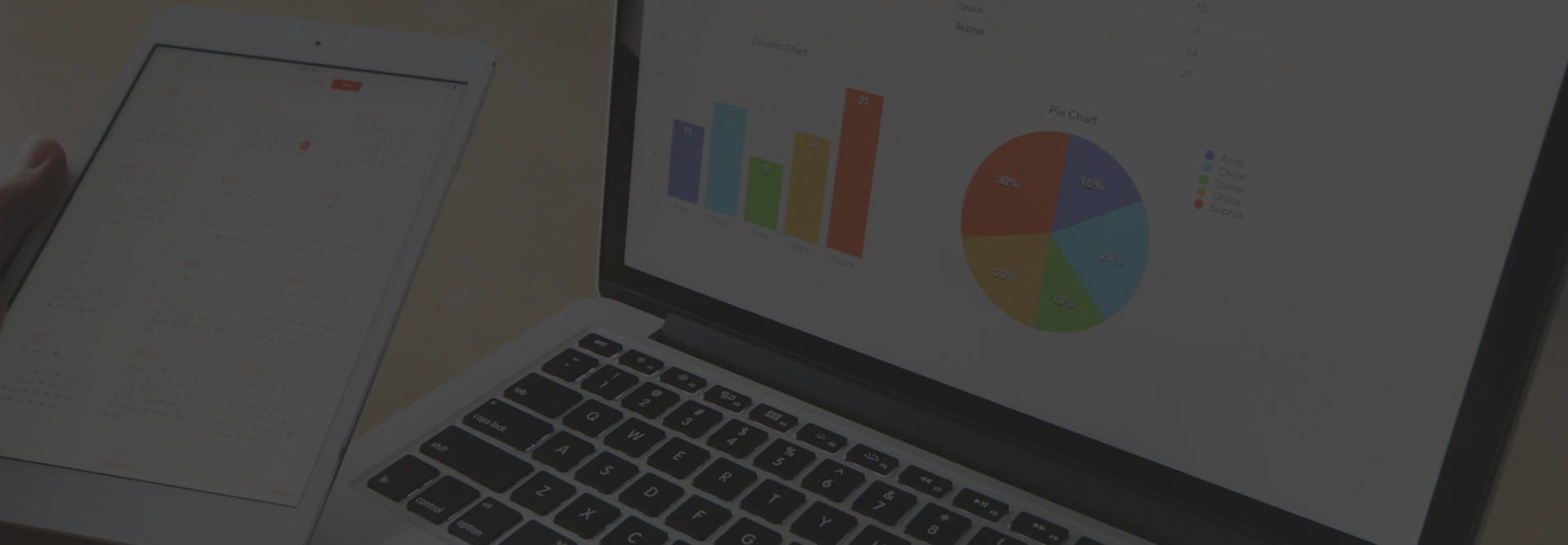SEO Optimisation
At DIGITALABS, we apply the best SEO indexation practices without relying solely on external tools that collect data for GAFAM companies. By using internal, open-source platforms, we maximise natural indexation and help small and local businesses across the EU enhance their organic visibility at no additional cost.
Why Our SEO Approach?
🔹 Built-in SEO from the start
Best practices for organic indexation are integrated from the creation of each website, not only through independent tools but also through hierarchical and semantic coding that enhances long-term visibility.
🔹 No reliance on external Google tools
We prioritise independent, open-source solutions for greater transparency and control.
🔹 Maximising natural indexation
Ensuring that search engines crawl and rank your website effectively, without paid ads or third-party dependencies.
🔹 Ideal for small and local businesses
Affordable, effective solutions designed to help local websites achieve stronger visibility.
🔹 E-commerce SEO requires continuous management
While small business websites benefit from structured indexation, e-commerce platforms require regular optimisation due to dynamic content and competitive updates.
We try to avoid the risks of too much data mining and exposure that are associated with US-based tools and platforms, as well as AI, by keeping data management and privacy entirely in-house.
Search Engine Indexing: All Content Matters
Search engines index far more than text. Every type of digital content can improve visibility when optimised correctly.
Key Indexed Content Types:
✔ Text and Articles – Blogs, web pages, product descriptions, and metadata.
✔ Images – Indexed via alt text, filenames, and structured data.
✔ Videos – Recognised through titles, descriptions, and transcripts.
✔ PDFs and Documents – Can appear in search results when properly optimised.
✔ Structured Data – Schema markup enhances search visibility.
✔ Audio and Podcasts – Indexed when accompanied by transcripts or metadata.
Any information published online, whether current, obsolete or deleted, can be traced and retrieved using search engines. Figuratively speaking, every action we take on the Internet leaves a digital footprint (DNA) which, with artificial intelligence, is even faster and easier to find.
Optimising for Search Engines
To maintain effective visibility and ranking, we recommend:
🔹 Using SEO-friendly formatting such as headings, keywords, and metadata.
🔹 Ensuring fast loading speeds and full mobile responsiveness.
🔹 Avoiding duplicate or low-quality content that can reduce ranking credibility.
🔹 Leveraging structured data to help search engines understand your content.
Search engines scan and index all available content, but relevance and quality determine ranking success.
Surf freely and respect your privacy
Ghostery, as an example among others, is a powerful browser extension designed to enhance privacy by blocking trackers and providing insights into website tracking activities. Here are its main privacy features:
Respecting privacy online is part of responsible digital practice. Tools like Ghostery, among others, offer advanced solutions to maintain control over your browsing data.
Ghostery’s main privacy features include:
- Tracker Blocking:
Blocks ads, trackers, and third-party cookies that monitor user behaviour. - Smart Blocking:
Automatically optimises which trackers to block for better privacy without disrupting website functionality. - Enhanced Anti-Tracking:
Removes tracking data from URLs to prevent companies from following you across sites. - Ad Blocking:
Blocks intrusive ads such as pop-ups, banners, and video adverts. - Privacy Insights Panel:
Displays real-time information about how websites track visitors. - Cookie Pop-up Blocker:
Automatically hides or rejects cookie consent pop-ups. - Ghostery Private Search:
Provides a private search engine that doesn’t log queries or history. - Tracker Analytics:
Generates detailed reports about tracking attempts for transparency. - Faster Browsing:
Improves page speed by blocking tracking scripts and ads that slow down performance.
At DIGITALABS, we promote privacy-respecting SEO, balancing visibility, independence, and data security.
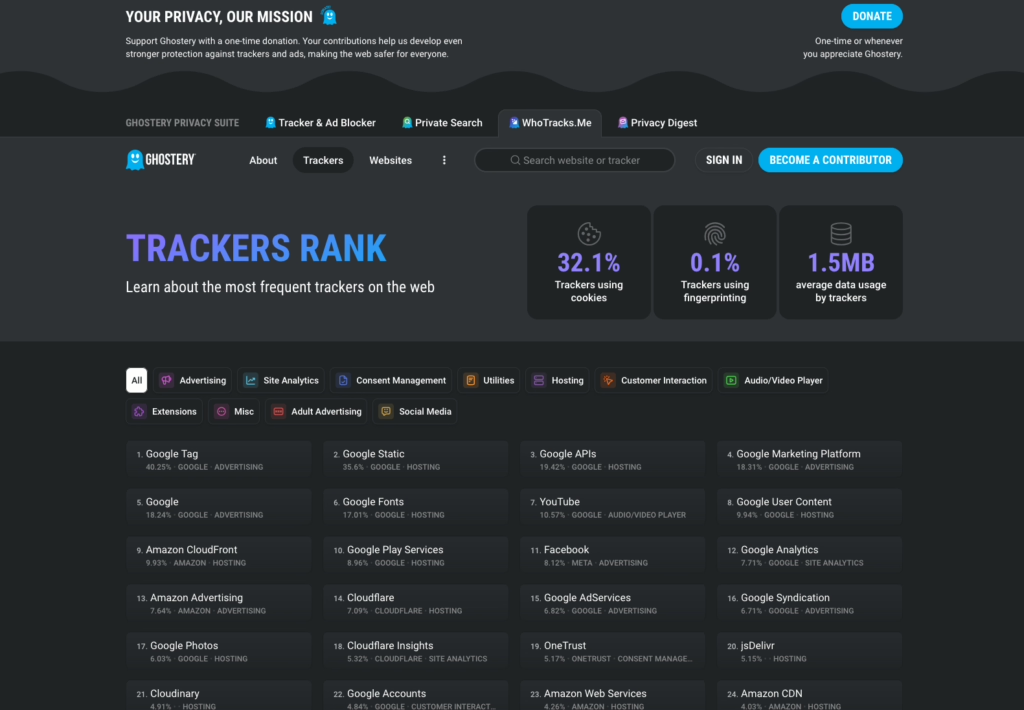
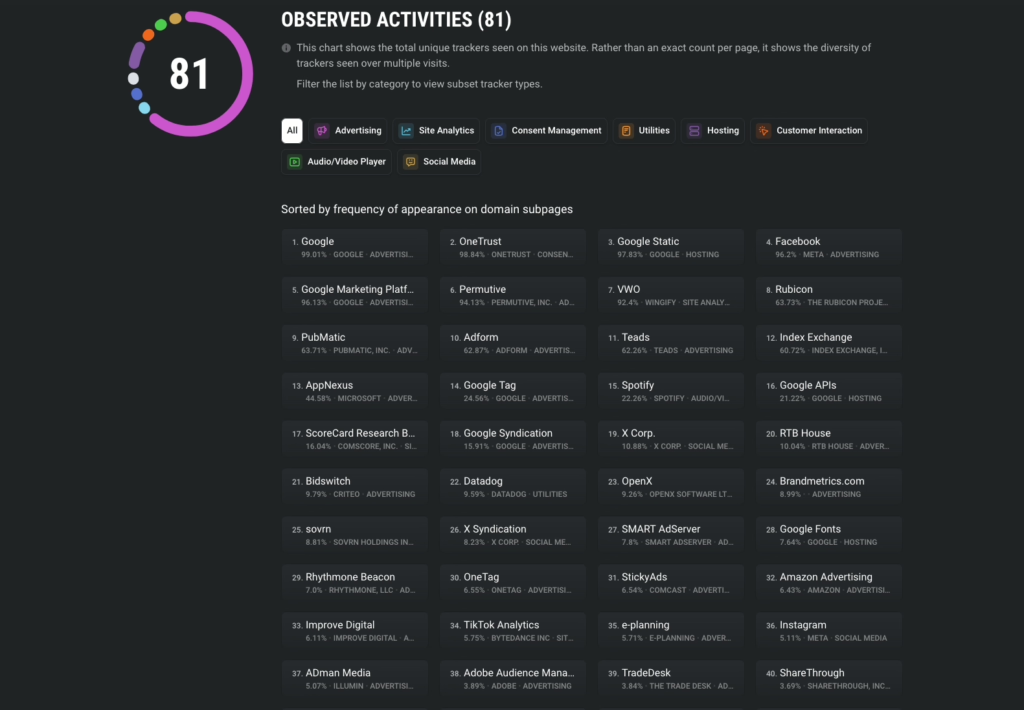
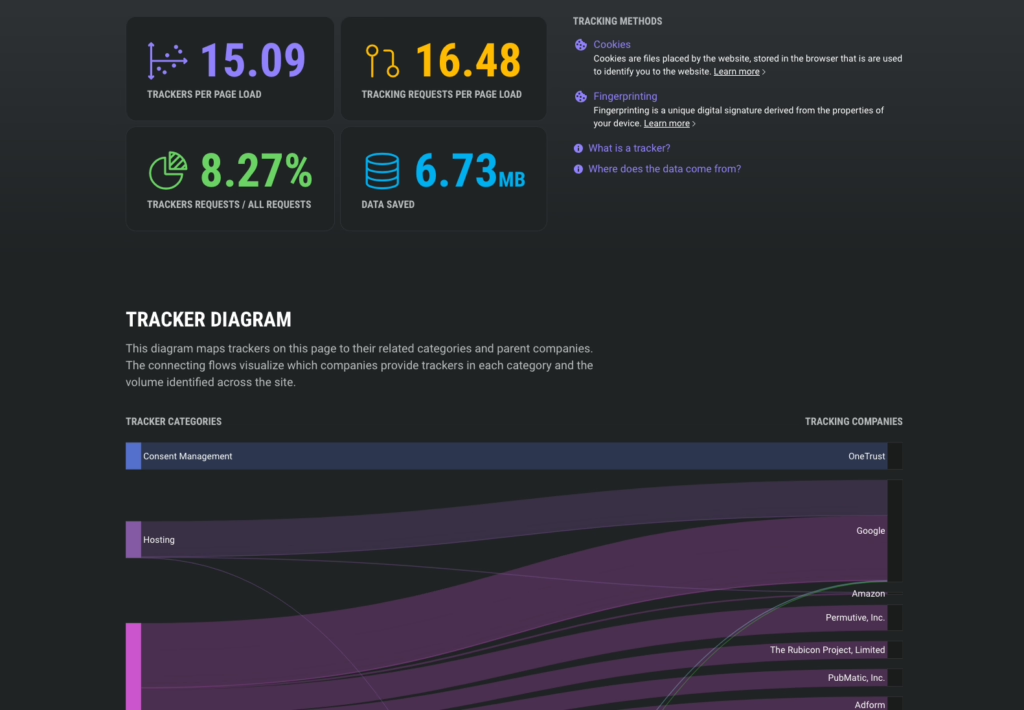
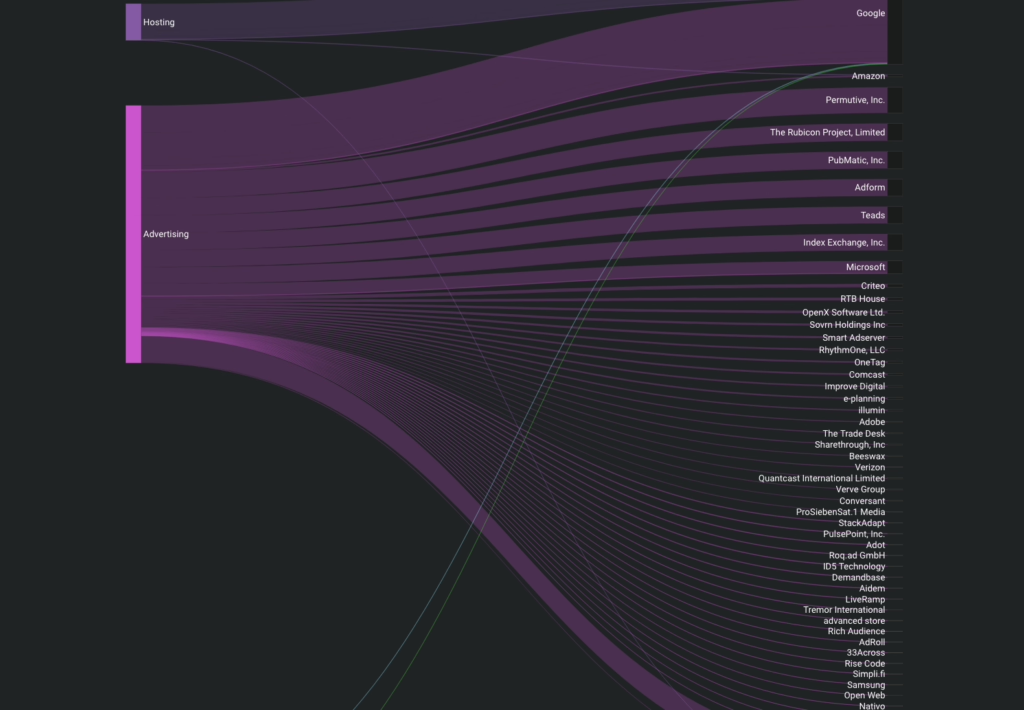
Data Privacy & User Consent
Users must be provided with clear and transparent information about web tracking, cookies, and data privacy.
Any website that uses tracking tools, cookies, or analytics snippets to monitor visitor behaviour must comply with GDPR and nLPD regulations, including in Switzerland.
Web tracking helps identify user interests, preferences, and browsing habits.
To ensure legal compliance and maintain trust, websites must:
✔ Obtain explicit consent from users before any tracking activity.
✔ Provide a clear, accessible privacy policy that explains data collection and usage practices.
✔ Allow users to manage cookie preferences according to applicable regulations.
Failure to comply with these principles can lead to legal and/or financial consequences.
Businesses must remain informed about evolving data protection laws to protect user rights and uphold ethical standards in data management.

